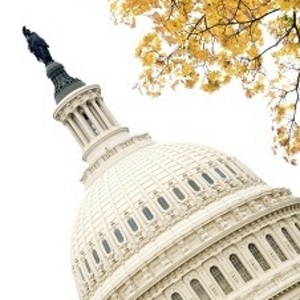Legislation would require country-of-origin labeling for fuels

July 18, 2014
BY Erin Krueger
Rep. Bruce Braley, D-Iowa, has introduced legislation that would require fuel suppliers to disclose country-of-origin information for transportation fuels. The bill, titled the “Country of Origin Labeling for Fuels Act,” was introduced July 16 and referred to the House Committee on Energy and Commerce.
The text of the bill indicates the U.S. Department of Energy and the U.S. EPA would be required to conduct a study to determine appropriate methods and standards for requiring that motor vehicle fuel suppliers disclose country-of-origin information to the next party in the fuel supply chain and that retailers disclose that information to consumers. The study would also make recommendations on the most feasible and cost-effective country-of-origin information disclosures requirements that can be imposed on motor vehicle fuel suppliers and motor vehicle fuel retailers. The labeling requirements would apply to both traditional transportation fuels and alternative transportation fuels, with the exception of electricity.
The legislation would set a 70 percent threshold on the regulation. This means that the measure would not require the listing of more than one country-of-origin for a fuel blend for which 70 percent or more of the blend originated in a single country. To enforce the labeling requirement, the bill establishes a maximum civil penalty of up to $10,000 for knowingly violating the requirements of the program.
“America has a decision to make about its energy future,” said Braley in a statement. “We can gut the [renewable fuel standard (RFS)] and move toward further reliance on Saudi Arabia, Venezula, and Nigeria for our energy needs—or we can continue our path toward energy independence by making investments in ethanol and other domestic energy sources. Iowans should know whether their fuel is coming from Saudi Arabia or from ethanol produced right down the road.”
Advertisement
Advertisement
A full copy of the bill can be downloaded here.
Advertisement
Advertisement
Related Stories
The U.S. Energy Information Administration maintained its forecast for 2025 and 2026 biodiesel, renewable diesel and sustainable aviation fuel (SAF) production in its latest Short-Term Energy Outlook, released July 8.
XCF Global Inc. on July 10 shared its strategic plan to invest close to $1 billion in developing a network of SAF production facilities, expanding its U.S. footprint, and advancing its international growth strategy.
U.S. fuel ethanol capacity fell slightly in April, while biodiesel and renewable diesel capacity held steady, according to data released by the U.S. EIA on June 30. Feedstock consumption was down when compared to the previous month.
XCF Global Inc. on July 8 provided a production update on its flagship New Rise Reno facility, underscoring that the plant has successfully produced SAF, renewable diesel, and renewable naphtha during its initial ramp-up.
The U.S. EPA on July 8 hosted virtual public hearing to gather input on the agency’s recently released proposed rule to set 2026 and 2027 RFS RVOs. Members of the biofuel industry were among those to offer testimony during the event.
Upcoming Events










